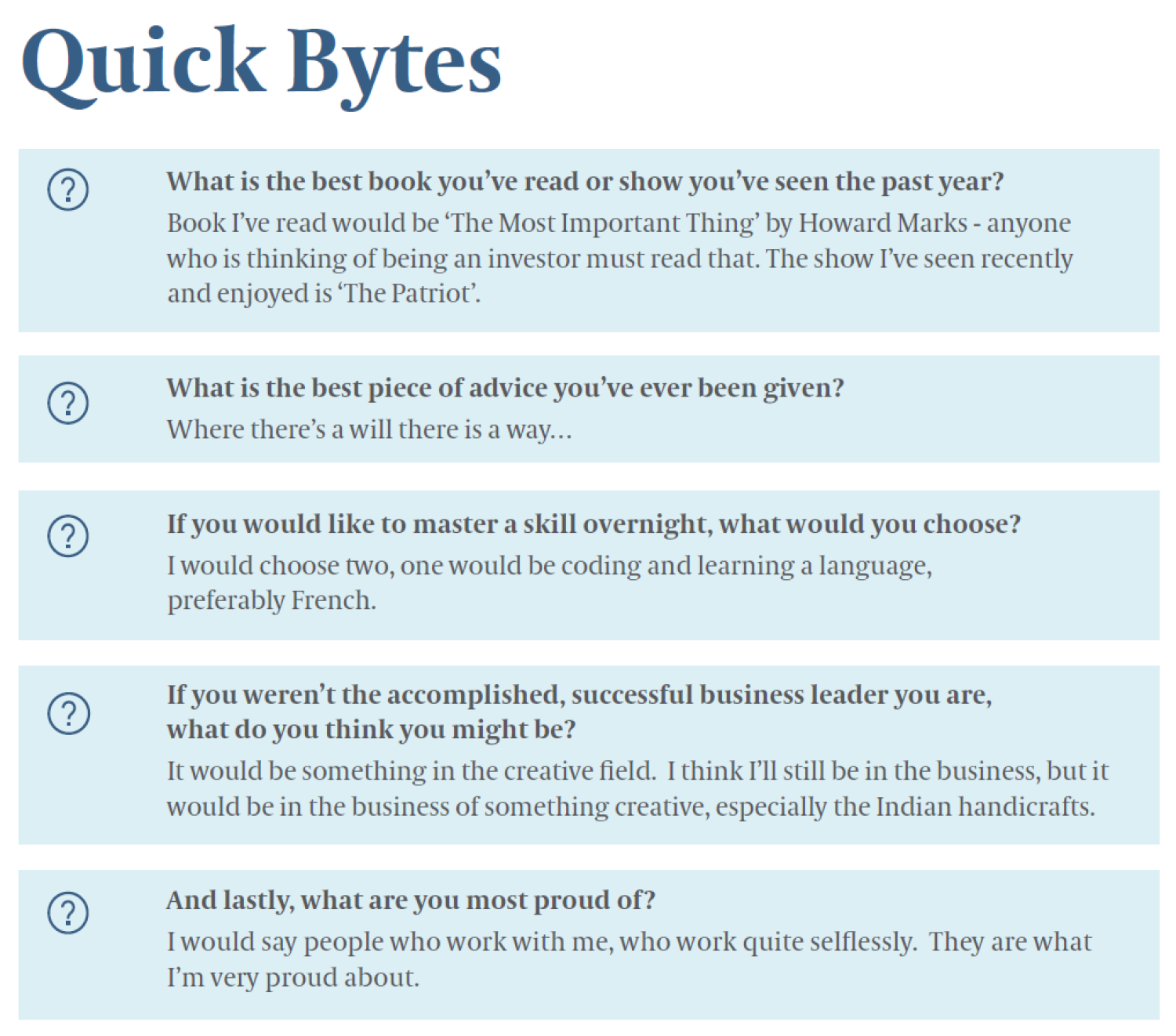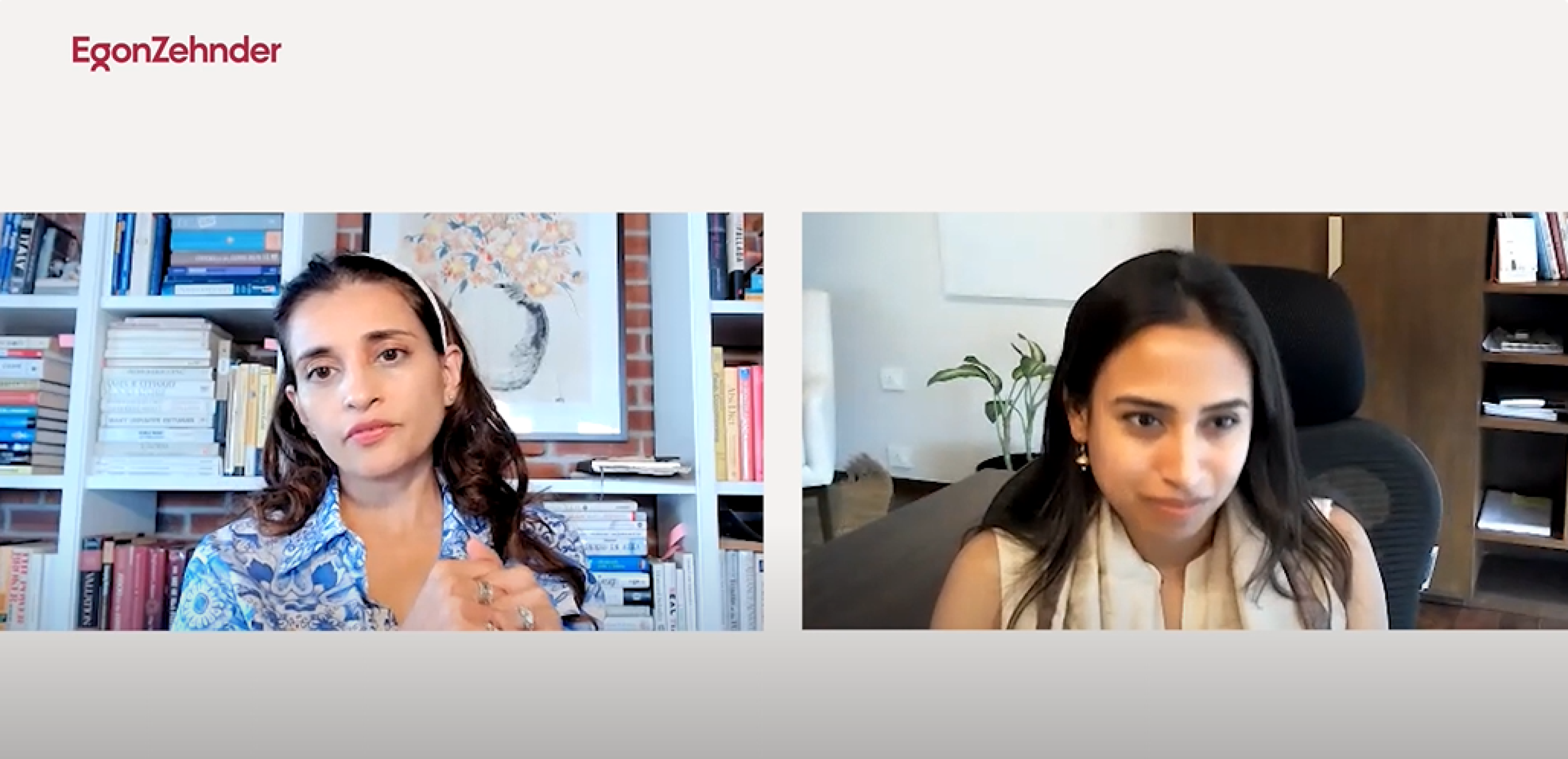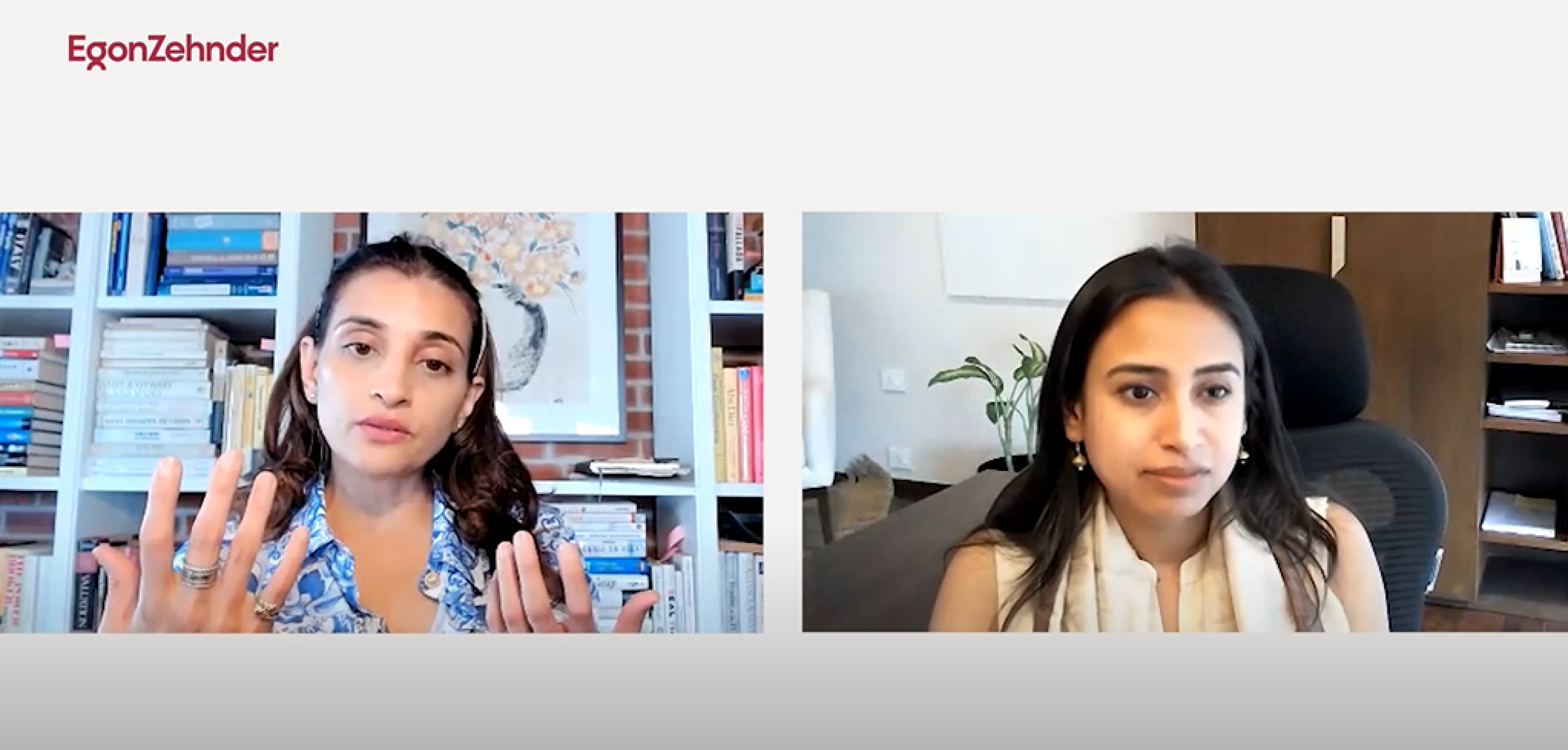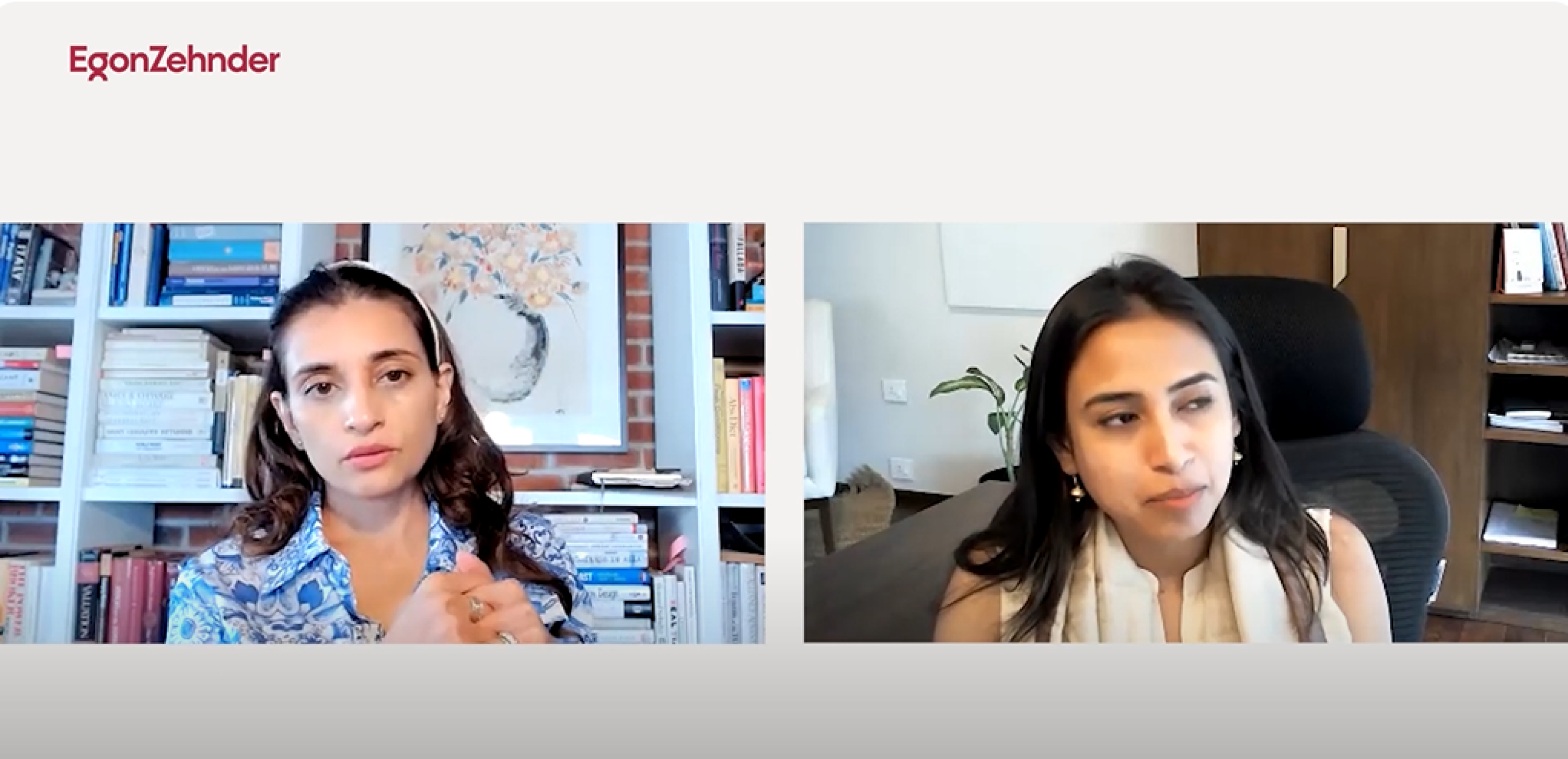Editor's Note: This interview is part of the Blazing a Trail: Women in Leadership series
Aditi Kothari Desai possesses a distinctive approach to enhancing and expanding endeavors, with a legacy focused not on a glossy corporate image but on empowering others to construct a brighter future through strategic investment. In our conversation, we delved into Kothari’s inspiring journey. From her early fascination with the arts, instilled by her mother, to her current role as Vice Chairperson of DSP Asset Managers Pvt Ltd. (DSPAM) and a member of the Executive Committee, she reflects on the diverse path that led her here. Notably, she pioneered the establishment of the first digital arm of DSPAM and is currently involved in a significant project set to be announced later this year.
Her trajectory into finance was influenced by a curiosity stemming from her father’s less conventional role as a merchant banker—a profession less clear to her classmates, whose parents were more commonly lawyers, doctors, or engineers. Studying abroad, her journey unfolded against a backdrop of personal growth and an appreciation for life’s simple pleasures, often shared with family.
Today, Aditi Kothari Desai wears multiple hats, serving as a Trustee in the Hemendra Kothari Foundation and the Wildlife Conservation Trust. In addition to her role as an Independent Director at Godrej Agrovet, she contributes to the Board of DASRA, a prominent strategic philanthropy foundation in India, and holds an advisory position with the British Asian Trust.
Throughout our conversation, she generously shares insights into her leadership journey and the pivotal experiences that have shaped her into the influential leader she is today.
Read on for our conversation highlights:
What were your growing up years like? Any highlights or memories around what shaped you early on?
Born and raised in Bombay, I attended Cathedral School and grew up in a joint family with my cousins and grandparents. These experiences shaped me and provided me with adaptability and social skills early on. I had a very disciplined mother who was very particular about healthy eating—we grew up on wheatgrass shots and non-white bread, even before it got trendy, which I wasn’t happy about yet learned to get on
with the household norm.
My mother, a graduate of the JJ School of Arts, exposed me to art early on, bringing me to the art galleries after school with her. Everything that I have learned about art is from spending time with her and not because I studied it. She was also very fond of handlooms sarees and handicrafts from villages. All our holidays were spent in Matheran riding horses and doing simple, outdoorsy things. These have all influenced me in being grounded and bringing appreciation to a variety of facets.
Creativity was all around me, but in contrast, my father—who was in investment banking—was very good with financial matters and numbers. Safe to say, I was much more exposed to the arts before I was exposed to anything finance related. Later, professionally, while I got into finance, those early influences have guided my other pursuits and non-profit endeavours.
Having grown up appreciating arts, why did you choose finance as a profession?
From a small age, I felt a sense of responsibility for the future and that I should understand what my father does. In school, friends’ fathers were lawyers, doctors, or engineers. When I said mine was a merchant banker, no one would understand. There was a big quest to understand what he did.
At the age of 11 my father gave me a little comic booklet to explain what financial markets were, which helped a little bit. I was in 6th grade when I first understood a little about what a stock was, the difference between equity and debt, etc. I was intrigued to understand more and I wanted to go overseas for my undergraduate studies. My father said I could only go if I got into a top-tier college. So I focused my efforts and got into the Wharton School of Pennsylvania, which was my real immersion into the world of finance, and the rest led on from there.
As you journeyed through Wharton and later Harvard Business School, was there a shift in worldview or discoveries, being independent and away from home for the first time?
I think it made me more confident as a person. I don’t think I built that confidence in school, but ironically in a place like Wharton where everyone around me was smart. Overall, it was very inspirational. The classes were very engaging, the professors were very motivating.
While I enjoyed the finance courses, I also quite enjoyed ethics - it made me think a lot. In hindsight, ethics were quite inherent because of my father—he always says that we must do the right thing. That we should be fair, honest and respect our commitments. I feel that the colleges helped me shape my personality, whereas character is what was shaped as I was growing up.
You started your career with Merrill Lynch and then went on to helm a large legacy at DSPAM quite early in your career journey. Tell us about how you evolved from being a person who’s shaping their career to helming a large company.
My personality has evolved so much. I’m not sure if I thought so much about it before learning along the way, but there have been some key shifts. I’ve become more patient and tolerant and yet very organized. I have learned to go deeper into data before making decisions. I have taught myself how to strike a balance between micromanagement and delegation. I also have learned to trust my team.
What has been challenging as you look back on your journey so far?
The challenging part for me is to not be in the shadows of my father’s legacy, but to be able to find a name of my own and be respected for what I have done differently. I feel the need to do something on my own that complements DSP’s legacy thus far. So, with a co-founder, I have started something called the Compound Express, a digital arm of DSP. It will most likely launch in October this year and I’m really excited about it!
Tell us about your mindset, being a young and successful female leader with a large scope.
When I started at DSPAM, I joined like any other early career colleague in my firm because I wanted to learn the nuts and bolts of the business. Initially, I wouldn’t get much work, so I would go around and find a project to do. Creating an international fund was one of those projects.
As I grew into my role, I realized we needed a full digital division, which I started. People didn’t understand much of what I saw, and I had to find my way in, had to be strong and hold my ground. Now, we are the first AMC to have a full digital division and have our own coders because I insisted on having that in-house. Also, hiring the right people and delegating rightly paid off.
Now, I need to take a step back to look at the macro to build businesses that would complement the core. And one day even become bigger than the core. How I think now is very different from when I started 20 years ago.

You are passionate about women’s financial independence and women taking charge of their lives and career. Could you tell us more about that passion?
I focus a lot on women’s financial independence and also creating their own safety nest. Once women have a career and a salary, they should be investing it on their own, and not depending on husbands or fathers or brothers. I also would like women to take a look at their overall lives and build a career, not a job. That framing might help them make the right trade-offs.
It’s very important that women distinguish their career and personal life. I’m very proud of the women who manage children and work. Women make great leaders. If you have the opportunity, you must go out and make a difference. You need to push yourself on the days you’re not ambitious. I believe in Karma, and that we’ve all come into this world to execute duties and we must do all the duties to the best of your abilities. I also abide by Nishkam Karma, in the sense that you should put the blinders and do what you must and do it well, whether it’s mothering, working, or being a wife; or all of those.
You are a strong proponent of encouraging young people to find opportunities – can you share more on your efforts around this?
Younger generations are so motivated and enthusiastic, which I find very energizing. I’ve come across young people with startups which are quite amazing, and most of them come from very small towns. Their ambition and drive is so inspiring.
To further support that, my family started a hostel for boys in Dadar in 1905 and now I’m on the Trust. We provide almost free boarding and lodging for boys from unprivileged backgrounds who come to Bombay to study here. We look for boys who have ambition in their fields, which they convey through essays they submit, and we support them until they can be independent.
How would you like the world to remember you?
I want to build something that’s going to make a difference in the society. The reason I talk about investment management versus investment banking is because I wanted to make a difference in the lives of everyone. From the security at our apartment to my entire staff—whoever comes to my house is asked to start their SIPs which they cannot touch till they retire. We have heard such fulfilling stories from the people who benefited from this in the past 15-20 years. For me, that is the legacy I want to leave behind.
In addition, I want to be able to make a difference in the lives of people in smaller towns. My new venture is software services for the mutual fund distributor who operates in these towns. I believe in the power of technology to scale, and these are the tools I’m building.








